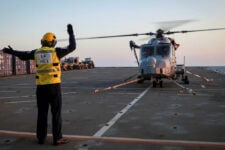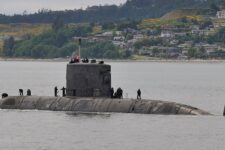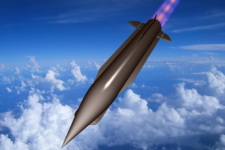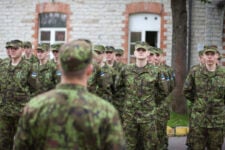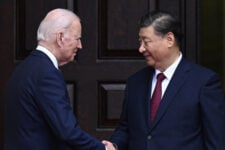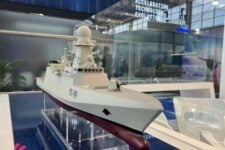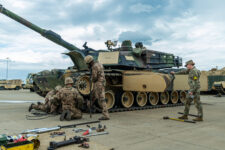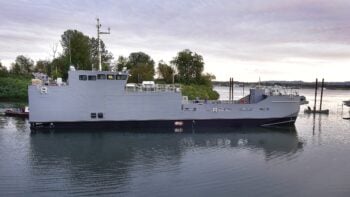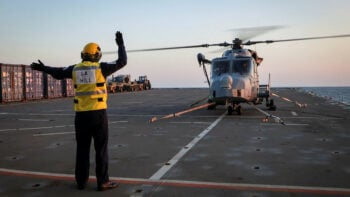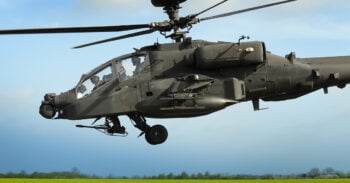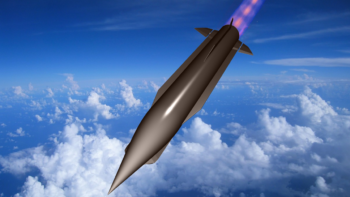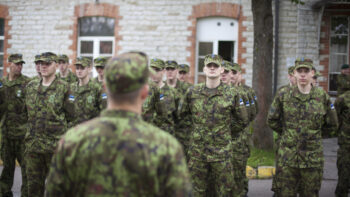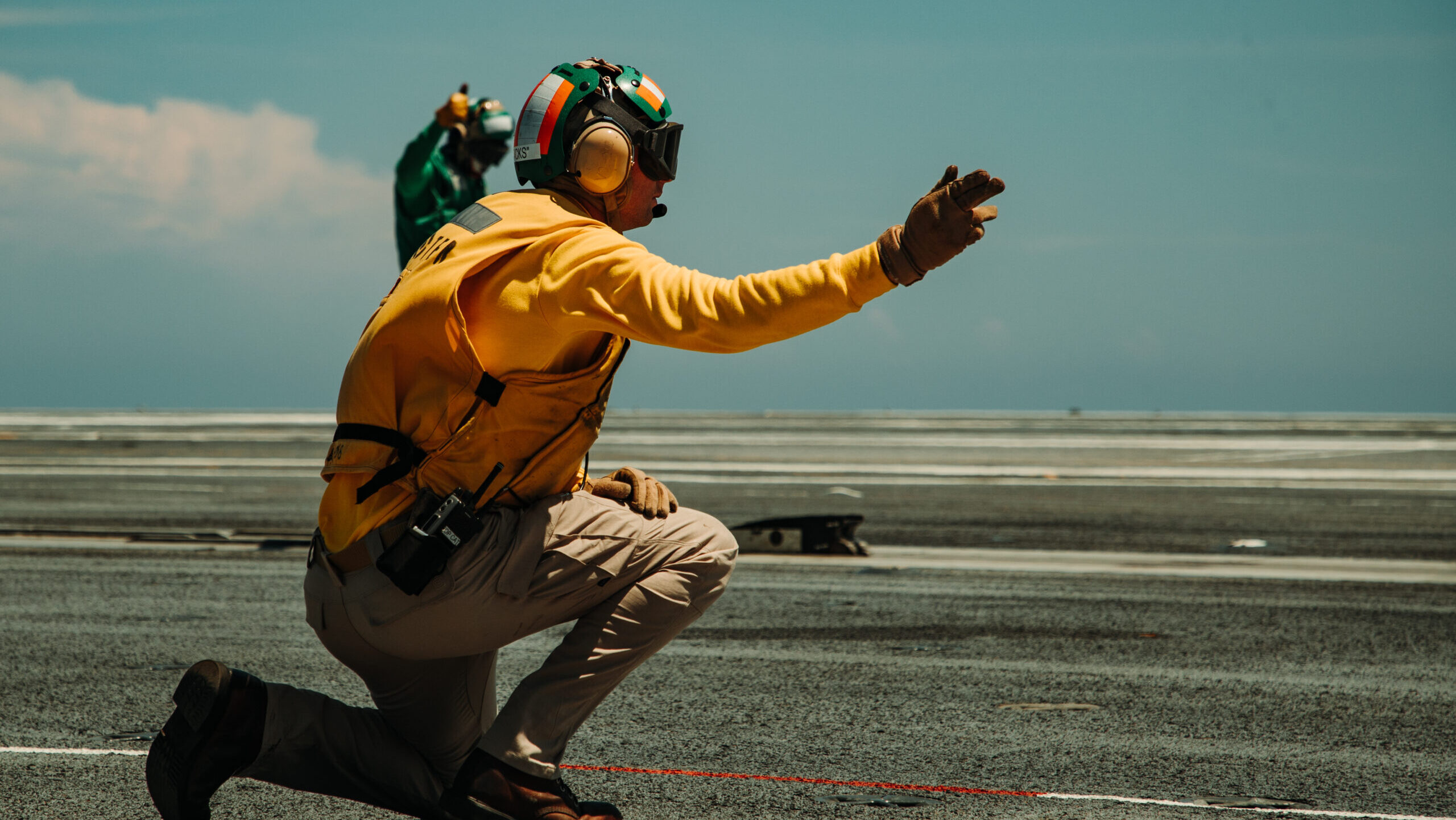
Lt. Andrew Rice, from Nebraska onboard Nimitz-class aircraft carrier USS George Washington (CVN 73) signals to launch aircraft on the flight deck during flight operations in the Atlantic Ocean, Aug. 8, 2023. (U.S. Navy photo by Mass Communication Specialist 2nd Class Nicholas A. Russell)
PARIS — Discussions about the navies of the future may be dominated by artificial intelligence or unmanned surface vessels or human-machine teaming, but the head of the French navy said too often another element is overlooked: the sailors.
“There will [still] be sailors, and they will be seasick,” quipped French Naval Chief of Staff Nicolas Vaujour at the 2nd Naval Conference Paris held Thursday.
Vaujour’s joke was a lighthearted remark about a deadly serious subject for the heads of the US, UK, French, Italian and Indian navies, who all spoke at the conference. Namely, that recruiting or retention shortfalls are imperilling future operations about as much as any enemy’s embrace of future tech.
“Let’s not forget that on boats there are men and women and they are the core of our affair,” Gen. Thierry Burkhard, the French Armed Forces Chief of Staff, reminded attendees in his opening remarks.
RELATED: Navy’s new Task Group 59.1 to usher unmanned systems into ‘operational realm’
Notably, it’s not that the different navies are having the exact same problems. India and France, for instance, generally don’t suffer recruiting shortfalls. There are typically one million applicants every year for the 300 places at the Indian Naval Academy, a senior Indian officer told Breaking Defense. Meanwhile France recruits 3,600 navy personnel every year.
For the US, UK and Italy, however, onboarding fresh recruits is the issue, according to senior figures from those services. For Italy, it is a “huge” problem, said Italian naval chief Enrico Credendino said. “We are in competition for talent.”
The US “is doing really well in retention,” according to American Chief of Naval Operations Lisa Franchetti, but has a problem recruiting.
“We’re talking to parents, teachers and have a broad education campaign explaining that you’ll get a skill you can use for the rest of your life and stressing on how important it is to serve the nation,” Franchetti said at the press conference after the event, noting that recruiters were targeting areas of “sea blindness,” places far from the sea where youngsters will never have considered the navy as a potential employer.
Earlier, Britain’s First Sea Lord Adm. Ben Key echoed a remark by Burkhard who’d stressed that “the navy must be in step with today’s preoccupations in order to be able to recruit youngsters,” saying that navies must pay attention to climate change and reduce their carbon footprint because there is a demand from society “to demonstrate that we are committed to those sorts of things.”
RELATED: Navy to join, analyze upcoming Lockheed demo of Patriot missile, Aegis integration
Key added “the young men and women that are going to join and crew our systems in the future will expect us to be demonstrating a commitment to look after the planet in which we’re operating.” Looking at his French counterpart, he quipped that “it’s useful if you’re operating nuclear-powered aircraft carriers because you’re putting less carbon up the funnel than we are but it’s not just contained to that.”
Asked what they saw as the navies’ priorities in the next decade, Vaujour remarked that educating, training and qualifying personnel “from the pilot to those inside the engine room” was a very lengthy process, so that over the next decade “all the things that could help me to simplify and to go more quickly in terms of skill acquisition and know-how such as automatic landing systems or easier decision-making processes inside the engineers complex will help me in the future to develop more resilient human resources on-board the ship.”
And while recruiting and retention were top of mind Thursday, when he was asked what three things will be different in navies over the next decade, Key agreed with Franchetti that these would be the balance between manned and unmanned systems, the latter being both a challenge and an opportunity; AI and data, notably for example for conditions-based maintenance which, were it available “then we’d have a lot more stuff flying”; and additive manufacturing, so that parts could be printed aboard the ships.
If only there are enough humans to man the machines.
TAI exec claims 20 Turkish KAAN fighters to be delivered in 2028
Temel Kotil, TAI’s general manager, claimed that the domestically-produced Turkish jet will outperform the F-35 Joint Strike Fighter.

